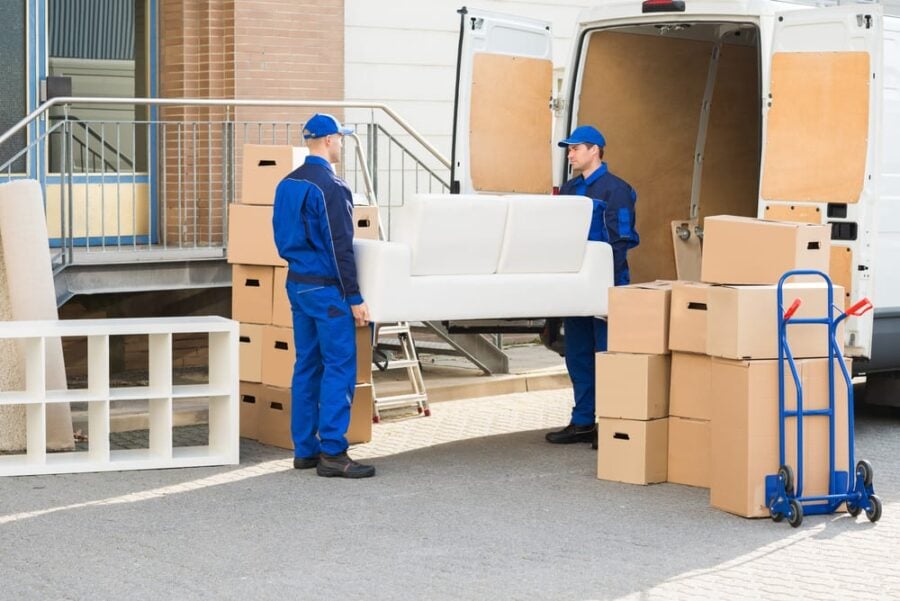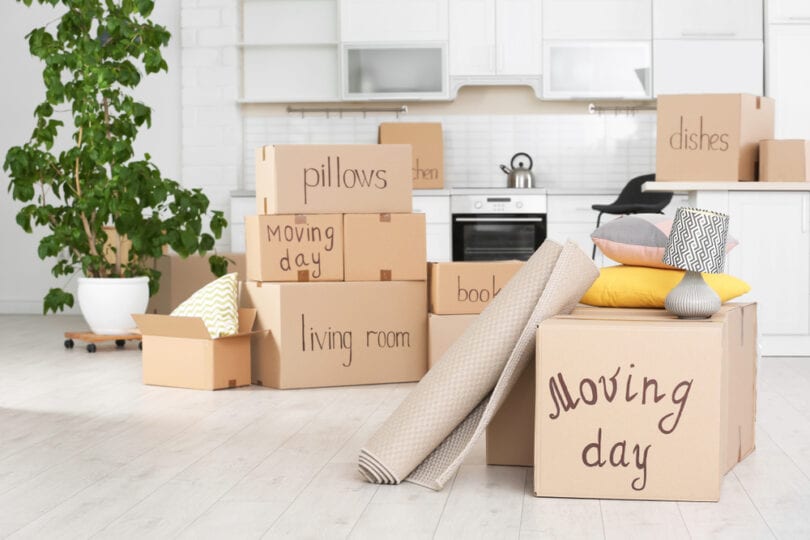Moving provides the exciting opportunity to refresh and renew. A new space in a new place can help positively shift your life and introduce new and exciting opportunities where you can learn and grow with the new community around you. There’s just something about having your morning coffee while looking out a different window that just feels so good, isn’t there?
When you first decide to move, it is easy to focus on the end result. The satisfying feeling of unpacking your last box, or deciding where your sofa will go or if there is enough closet space for all your shoes. All very important things to think about, of course. But what about the time leading up to your move?
It’s great to be excited about your arrival, but don’t forget to take care of your practicalities first. The better you do at creating and sticking to a pre-move checklist, the more you can relax once you get to your new home. Here are 7 things to consider when planning your move, to ensure you’ve got the big stuff covered.

1. What will you take with you?
Repeat after us: “I won’t move things I won’t use, don’t need, or don’t want.”
The very first step in planning your move is sorting through the things you have. Decluttering is a tedious but an essential part of any moving journey. After all, why move with things you don’t want, need, or use?
Moving companies charge based on a few factors, but most of them boil down to how much stuff you’ll be bringing to your new place. How many movers, how long the job will take, and what equipment they’ll need all center around one thing: your belongings.
Decluttering can be done by evaluating all of your belongings and deciding if you want to keep, sell, donate or replace them. It is important to try and only keep things you may need. The less things you have to move, the more time and money you will save and the less you’ll have to unpack on the other side.
2. What are you going to do with the things you don’t want to bring?
Now that you’ve sorted through your things, you have a pile that you’d like to get rid of. What will you do with them now?
There are some things that are trash, of course. Discard them as needed. You’ll then be leftt with things suitable for donation or gifting.
With these items, find donation centers that will take the items you want to donate. Many centers have specific receiving hours. If you need help transporting anything, plan ahead and make arrangements early as these facilities are often limited in resources and it can take some time for them to schedule a pick-up.

If you have items to sell, decide how you’d like to go about it. Facebook Marketplace, Craigslist, or eBay are good online options. Offline, you could have a garage sale or head to a consignment shop to have them sold on your behalf. Selling items can also take time so allow yourself enough for this process.
3. When are you going to move?
Knowing a firm or general date will help you get things organized. Of course, things vary by season, and your preparations follow along with that in many cases. Moving in the snow or rain requires more careful planning around packing and your strategy for bringing things through the doors of your current and future homes.
Another factor of timing is the availability of moving companies. There are certain times that are more popular for moving, including summers, weekends, and holidays. If you can help it, try to plan your move midweek so you can take advantage of greater truck and manpower availability.
4. What moving supplies do you need?
Once you’ve narrowed everything down to what you’re taking with you, you’re liable to need supplies to prepare them for transport. Consider how many boxes you’ll need, and what packing materials will help you keep your delicate things safe. There are many places to get free boxes, so you can start by collecting what you can find. Try bookstores, grocery, or liquor stores to see if they have boxes to spare.
5. What do you want help with?
Now that you see how much you’re moving, you can start asking yourself what you’ll like to offload to the professionals. Hiring a moving company is an obvious recommendation, as letting professionals do the heavy lifting not only saves you the sweat but helps ensure your things arrive safely.

Full-service moving companies can take this a step further. They’ll bring packing supplies and pack all of your things for you. They’ll disassemble furniture and prepare it before loading it in the truck. When arriving at your new place, they’ll reassemble your furniture and unpack your boxes. They’ll even dispose of the packing materials so you don’t find yourself tripping over boxes in the days (weeks?) after your move.
6. What do you need to update to your new address?
Consider what utilities you need to move, and what will be canceled before going. If you have accessible meters for your water or electricity, take photos on the final day in your house for your records. Alert the US Postal Service of your change of address so you don’t miss out on any important pieces of mail.
7. What will you need in the first few days in your new place?
Packing an essentials box is a great way to make sure you land in your new home comfortably. After a long day of packing, you’ll want to brush your teeth, take a shower, change into your pajamas, and slip in between the sheets for a good night’s sleep.
In the morning you’ll want to wake up and drink some coffee and a glass of water, and maybe even have a bit of breakfast before tackling the day. Do yourself a favor and pack your essentials. This includes of course any medications you’ll need, soaps, a couple of dishes and cups, sheets, pillows, and other bedtime things, and a towel. Keep these items in a separate box so you don’t need to dig around at the end of the day.








